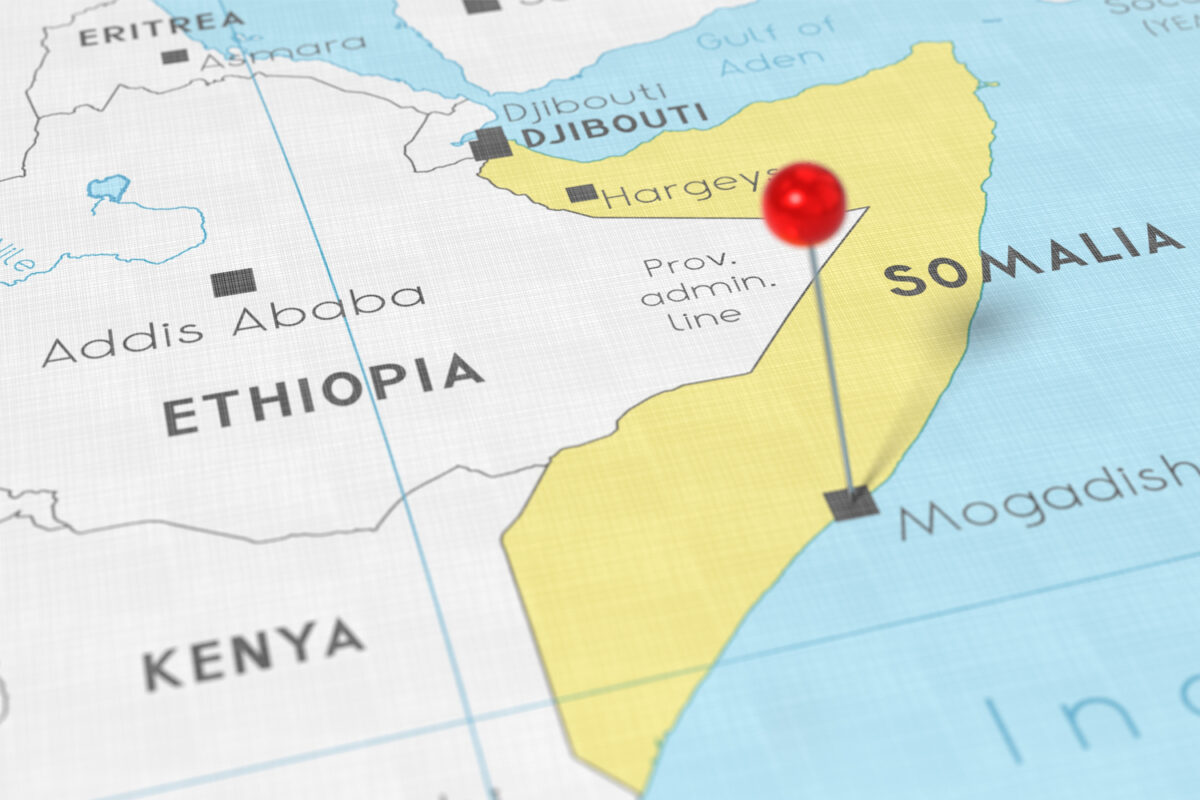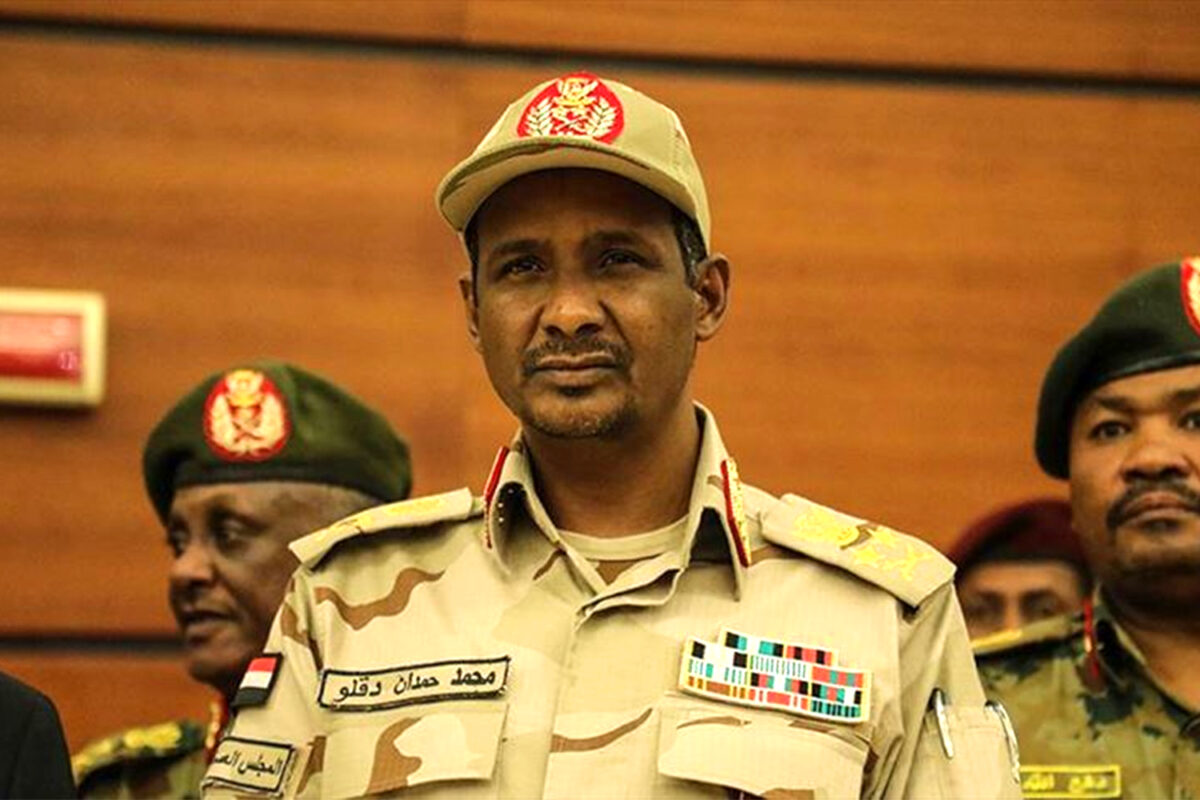In Niger’s fifth successful political takeover since the end of (direct) colonial rule by France in 1960, soldiers announced the forced removal of President Mohamed Bazoum from power late on Wednesday the 19th. This was hours after members of the presidential guard detained Bazoum at his official residence. Omar Tchiani, also known as General Abdourahamane Tchiani and one of the major players in the coup, announced himself as head of the transitional government.[1] He has been the head of the presidential guard unit since 2015 and a close ally of former President Issoufou.
Interestingly enough, Tchiani was the bulwark against an attempted coup in 2021 just before Bazoum was sworn in, which earned him the president’s trust and was preserved as the head of the presidential guard. Much is yet to be revealed about the general but it is known that he was promoted by President Issoufou in 2018.
The detained president Bazoum reacted by appealing to public sentiment and said that “The hard-won gains will be safeguarded,” despite the coup, Bazoum said on the social platform X, formerly known as Twitter “All Nigeriens who love democracy and freedom would want this.” He was the first president to have been democratically elected into office in Niger since independence. His foreign minister, Hassoumi Massoudou, also posted on X, calling on “…all democrats and patriots…” to render this “…perilous adventure…” a failure.
Two days after the coup, Tchiani appealed for public support by asserting that the president was leading Niger towards a “…gradual and inevitable demise…” and that an intervention was the most patriotic thing to do – a common theme with all coup plotters to justify their actions. A group of Nigerien soldiers, excluding Tchiani himself, calling themselves National Council for the Safeguarding of the Country headed by Colonel-Major Amadou Abdramane supported the coup and informed the nation on national television that “The defence and security forces … have decided to put an end to the regime you are familiar with”.
Tensions are high as domestic and international and regional bodies reacted to the coup. The Niger coup is now the sixth coup in the region since 2020. West Africa’s 15-nation regional bloc, the Economic Community of West African States (ECOWAS), moved to react swiftly by cutting off aid and threatening the coup leaders. The bloc called for Bazoum’s immediate and unconditional release, warning that all those involved would be held responsible for his safety.
Nigeria’s new president and chair of ECOWAS, Bola Tinubu revealed he has been in “...close consultation…” with African regional leaders. He also mentioned that Benin’s President Patrice Talon was dispatched to represent the regional bloc. “The ECOWAS leadership will not accept any action that impedes the smooth functioning of legitimate authority in Niger or any part of West Africa,” he said in a statement. “We will do everything within our powers to ensure democracy is firmly planted, nurtured, well rooted and thrives in our region.”[2] Talks of a military junta to intervene in Niger to restore the democratically elected president increased after ECOWAS members met in Nigeria. The coup leaders, however, quickly countered by asserting that France, who is widely regarded as a colonialist in Niger, was plotting to use force.[3]
Moreover, there was no domestic resistance against the coup, rather several reports establish the masses are in support. This was aptly voiced by Boubacar Hamidou, a human rights activist among the crowd outside parliament, who said in support of the coup that they “…have always believed in the army’s actions and this time we are with them. For us, this is joy”. This has significantly played against the French whose embassy was attacked and Russian flags to indicate freedom from colonial clutches. The exacerbating economic and security situation in the country not only made the government vulnerable but made it hard to reverse any drastic action taken by the military, as it so happened.
UN Secretary-General Antonio Guterres also expressed his support for the ousted president. A UN spokesman posted on X that “This afternoon @antonioguterres spoke to @mohamedbazoum. He expressed his full support and solidarity to the Nigerien President”.
The European Union (EU) and France (in particular) condemned the coup harshly. The EU did so by warning and suspending financial support to the West-African country. The US, on the other hand, condemned the coup but only seemed to be paying lip service. Both it and France are the top international players in this scuffle. The US criticized the coup through its National Security Adviser, Jake Sullivan who said that they (the US) “…specifically urge elements of the presidential guard to release President Bazoum from detention and refrain from violence”. Its criticism comes without actually completely condemning the actions of the soldiers and merely called for a refrain from violence. The US is famous for promoting its regional interests through elections but in recent years soldiers it trained have been responsible for the coups in Africa, including Mali and Guinea.
France, on the other hand, quickly landed military aircraft in Niger despite airspace closure. But having around a thousand soldiers of its own stationed in Niger alleviated the hardship of doing so. It obviously took the military takeover hard as its long streak of decline in political influence keeps fading.
As the former colonial master of several African countries, France has been losing political influence in the region through coups led by US-trained soldiers
As the former colonial master of several African countries, France has been losing political influence in the region through coups led by US-trained soldiers – one of the key personalities in the Niger coup is Brig. Gen. Moussa Salabou Barmou, the chief of Niger’s Special Operations Forces. He was trained by US military, The Intercept confirmed.[4] It added: “ ‘We have had a very long relationship with the United States,’ Barmou said in 2021. ‘Being able to work together in this capacity is very good for Niger.’ Just last month, Barmou met with Lt. Gen. Jonathan Braga, the head of U.S. Army Special Operations Command, at Air Base 201, a drone base in the Nigerien city of Agadez that serves as the lynchpin of an archipelago of U.S. outposts in West Africa.”
In a clear move to eliminate not just French political influence but cultural presence in Mali, French armed forces were kicked out by the new military government and the African country recently dropped French as its lingua franca. The military leaders of Mali and Burkina Faso implicitly came out in support of the coup in Niger by warning against war, insisting that any use of force in Niger is a declaration of war against them as well. According to them, such an intervention could destabilise an already vulnerable region. What it truly means, though, is that Mali and Burkina Faso are willing to embroider the region in an escalated war if Niger were to be invaded.
France’s loss of allies in Niger is another huge blow to its influence in Africa. Just like the coup in Mali was supported by the populace who condemned ECOWAS for condemning the coup, people in Niger are not slightly against the coup as well. The attack on the French embassy, which saw the French government quickly swooping in to evacuate its citizens is a case in point. French flags were burnt while Russian flags were waved as a sign of freedom and independence. This is merely because, during its Soviet days, Russia was strongly anti-colonialist as a communist state, not because it had any significant role in the matter. The head of Wagner, Yevgeny Prigozhin, who recently feigned a coup against the Russian government, took advantage to increase Russian popularity and described the developments as a part of Niger’s fight against the “…colonisers…”. But this is merely a very Russian way of seeking attention – in other words, without diplomatic finesse.
France’s loss of allies in Niger is another huge blow to its influence in Africa
Implications to Africa
Coups are theoretically (basically) caused by a government’s inability to address the basic needs of its citizens. In recent history, especially after independence in Africa, coups have been orchestrated by military officials, supported by Western powers with designs on the country’s resources. In this setting, the practical part of the theory is utilized by coup plotters to justify their actions. With hardship running rampant, local support can easily be secured, which lessens the possibility of foreign intervention without a media blowback. This was the case in the most recent coup in Mali, which saw the masses openly attacking ECOWAS for condemning the coup. All the factors making a government vulnerable to a coup were present in Niger, as Emmanuel Kwesi Aning, professor of peacekeeping practice at Kofi Annan International Peacekeeping Training Centre in Accra, Ghana, told Al Jazeera: “The [attempted] coup fits into a long pattern of inability by the political class to speak to the economic challenges and the security and political instabilities in the country…”. He added “That, nevertheless, does not justify the attempted coup…”
In a region recently marred by coups with or without domestic support (five coups since 2020), the implications are wide-ranging. Countries struggling domestically most definitely have their eyebrows raised. The possibility of civil unrest and military interventions keeps rising by the day in every African country. This fear of a ripple effect was confirmed when sudden reports came out of Sierra Leone that top military leaders were arrested on the 2nd of August on charges of plotting a coup. This is less than a week after the Niger coup.
More importantly, external powers with economic and political interests in the continent will continue taking advantage of the domestic challenges and using them as battling grounds for control of resources and global influence. In the case of Niger, it is the 7th largest centre of uranium, a mineral used in the development of nuclear power. The scramble for Africa has been going on for centuries, but the recent surge in military takeovers raises eyebrows in the circle of politicians all over Africa and marks another point in the sad history of the continent under the thumb of colonialism.
1 Niger general Tchiani named head of transitional government after coup | News | Al Jazeera
2 Niger coup updates: Unrest as army backs guards who moved against Bazoum | News | Al Jazeera
3 Niger coup leaders accuse France of plotting military intervention | Niger | The Guardian
4 Niger Coup Leader Joins Long Line of U.S.-Trained Mutineers (theintercept.com)




